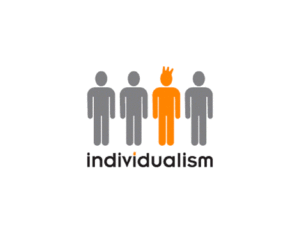[ad_1]

Many people take for granted the idea that individualism leads to selfishness. But a new study, forthcoming in Psychological Science, concludes the opposite: more individualistic societies feature higher levels of altruistic generosity than more collectivist ones. Georgetown psychology and neuroscience Prof. Abigail Marsh, one of the authors of the study, summarizes the key findings in a recent New York Times op ed:
The United States is notable for its individualism. The results of several large surveys assessing the values held by the people of various nations consistently rank the United States as the world's most individualist country. Individualism, as defined by behavioral scientists, means valuing autonomy, self-expression and the pursuit of personal goals rather than prioritizing the interests of the group — be it family, community or country…
Everyone seems to agree that our individualism makes us self-centered or selfish, and to disagree only about how concerning that is.
But new research suggests the opposite: When comparing countries, my colleagues and I found that greater levels of individualism were linked to more generosity — not less….
For our research, we gathered data from 152 countries concerning seven distinct forms of altruism and generosity. The seven forms included three responses to survey questions administered by Gallup about giving money to charity, volunteering and helping strangers, and four pieces of objective data: per capita donations of blood, bone marrow and organs, and the humane treatment of nonhuman animals…
[E]ven after statistically controlling for wealth, health, education and other variables, we found that in more individualist countries like the Netherlands, Bhutan and the United States, people were more altruistic across our seven indicators than were people in more collectivist cultures — even wealthy ones…..
On average, people in more individualist countries donate more money, more blood, more bone marrow and more organs. They more often help others in need and treat nonhuman animals more humanely. If individualism were equivalent to selfishness, none of this would make sense.
While Marsh characterizes her group's findings as "surprising," they are in fact consistent with a variety of previous research finding that the United States and other relatively individualistic societies feature higher levels of charitable giving and other forms of generosity than more collectivist societies.
The idea that individualism (particularly the libertarian version thereof) promotes selfishness is both at odds with empirical evidence and often based on a false conflation of altruistic cooperation and government coercion.
Marsh suggests several reasons why, contrary to stereotype, individualism promotes generosity:
How does individualism manage to promote altruism? One possibility, supported by other research, is that people in individualist cultures generally report greater degrees of "thriving" and satisfaction of life goals — and as noted above, such subjective feelings are meaningfully correlated with greater amounts of altruism. (Indeed, research has shown that being altruistic, in turn, promotes greater feelings of personal well-being, creating a virtuous circle.)
Another possibility is that individualism boosts altruism by psychologically freeing people to pursue goals that they find meaningful — goals that can include things like alleviating suffering and caring for others, which studies suggest are widespread moral values.
A third possibility is that individualism promotes a more universalist outlook. In focusing on individual rights and welfare, it reduces the emphasis on groups — and the differences between "us" and "them" that notoriously erode generosity toward those outside one's own circle.
I would add that collectivist ideologies also tend to undermine generosity by fostering a "zero sum" mindset where that which benefits one group necessarily comes at the expense of others.
Sadly, liberal individualism is currently under attack by both the nationalist right and socialist and "identity politics" elements on the left. While these groups differ on many issues, they are united in their hostility to individualism and promotion of a zero-sum world view. The more these ideologies take hold, the more American individualism may erode — and generosity along with it.
Source link
[ad_2]
source https://earn8online.com/index.php/279547/how-individualism-promotes-generosity-reason-com/
No comments:
Post a Comment